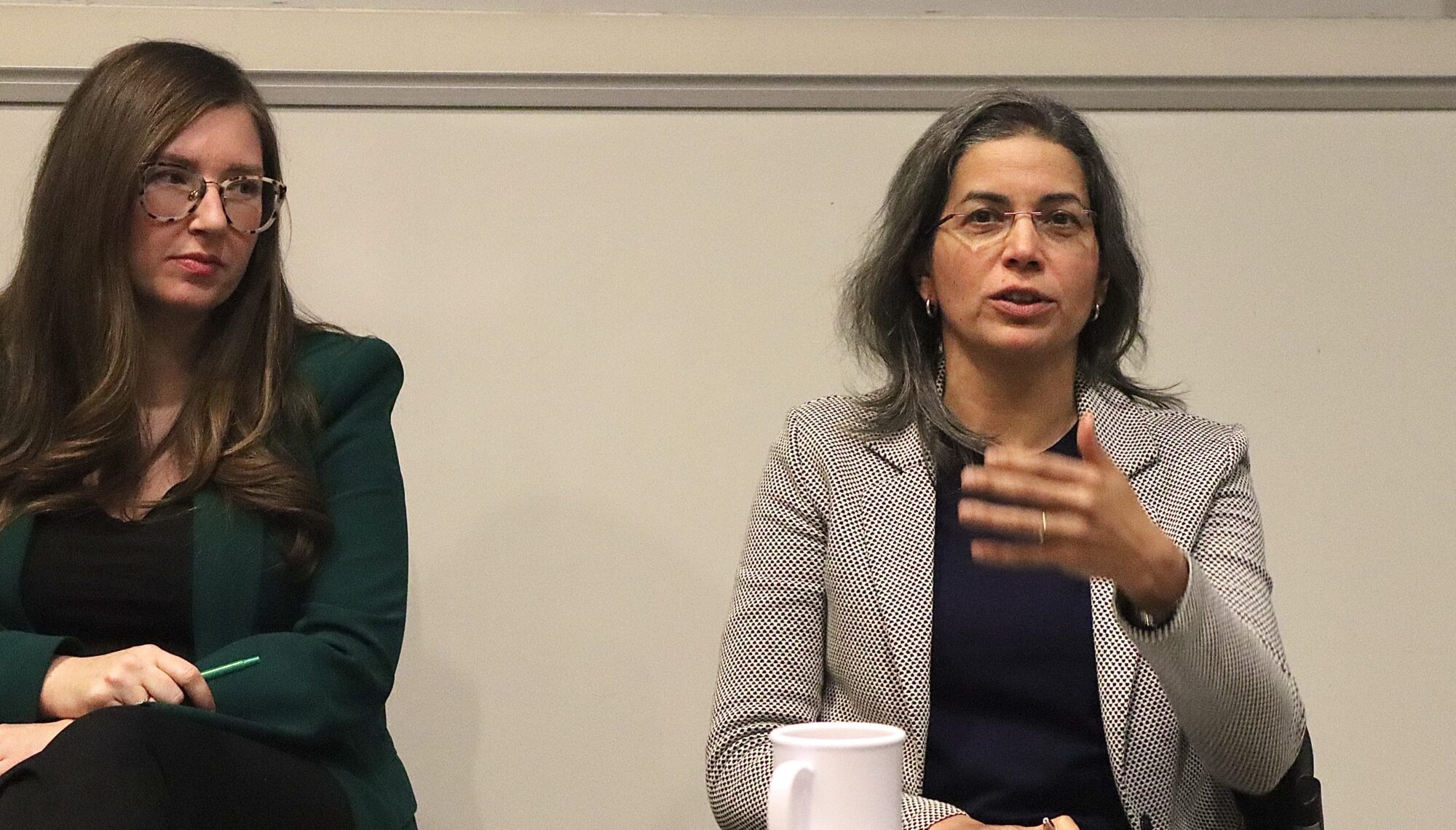What is our military for? With Trump’s return, Canadians need to decide, profs say
Roundtable discussion highlighted a need for a national conversation about the role of the Canadian armed forces.

caption
Leigh Spanner (left) and Maya Eichler (right) were among four political science professors who shared insights at a round table discussion at Dalhousie on Friday.Halifax political science professors say Canadians must better define the role of their military as U.S. President Donald Trump begins his second term.
“We really haven’t had a national conversation about what the purpose and the role of the Canadian armed forces should be,” said Maya Eichler, a professor at Mount Saint Vincent University.
The academics met for a roundtable discussion at Dalhousie University on Friday to discuss the legacy of Prime Minister Justin Trudeau and Canada’s future with another Trump presidency.
The event, hosted by Dalhousie’s Centre for the Study of Security and Development, aimed to address the adversarial comments made by Trump in recent weeks. Trump has promised to place 25 per cent tariffs on all Canadian goods and threatened to make Canada the 51st state.
“The U.S. will always loom large in any conversation around Canadian defence policy when we are basically tied together,” said Eichler.
Professors Brian Bow from Dalhousie University, Leigh Spanner from Saint Mary’s University, and John Cameron, a professor of international studies at Dalhousie University also shared perspectives.
Bow raised questions about the arctic. He questioned whether Canadians are “being naive” about sharing a border with Russia and whether Canada should assume more responsibility for its own defence and further protect the environment.
“Or are we just too weak to have much of an impact?” he asked.
Young people “need to talk about it”
About two dozen members of the public attended the event, held in the Rowe Management building. The discussion was mediated by David Black, the director of the centre and a professor at Dalhousie.
Megan Cooper, who attended the event, is a political science student at Dalhousie.
Cooper said, in her experience, young people in Canada are hesitant to talk about the role of the military, or are anti-military.
“But we need to talk about it,” she said. “Or else you leave it for the people who do want to talk about it, who are often far right.”
At the NATO summit in July 2024, Trudeau announced Canada will increase its defence spending to two per cent of GDP by 2032. On Jan. 6 this year, he announced he will step down as prime minister once the party elects a new leader.
Eichler said she doesn’t think meeting the two per cent goal should be used to address expectations from the U.S. or other countries.
“Is that something Canadians want?” she asked. “If yes, what exactly are we spending that on?”
Correction:
About the author

Olivia Piercey
Olivia Piercey is a fourth year journalism honours student. When not working for The Signal, she can found hosting The Basement Couch on CKDU,...
